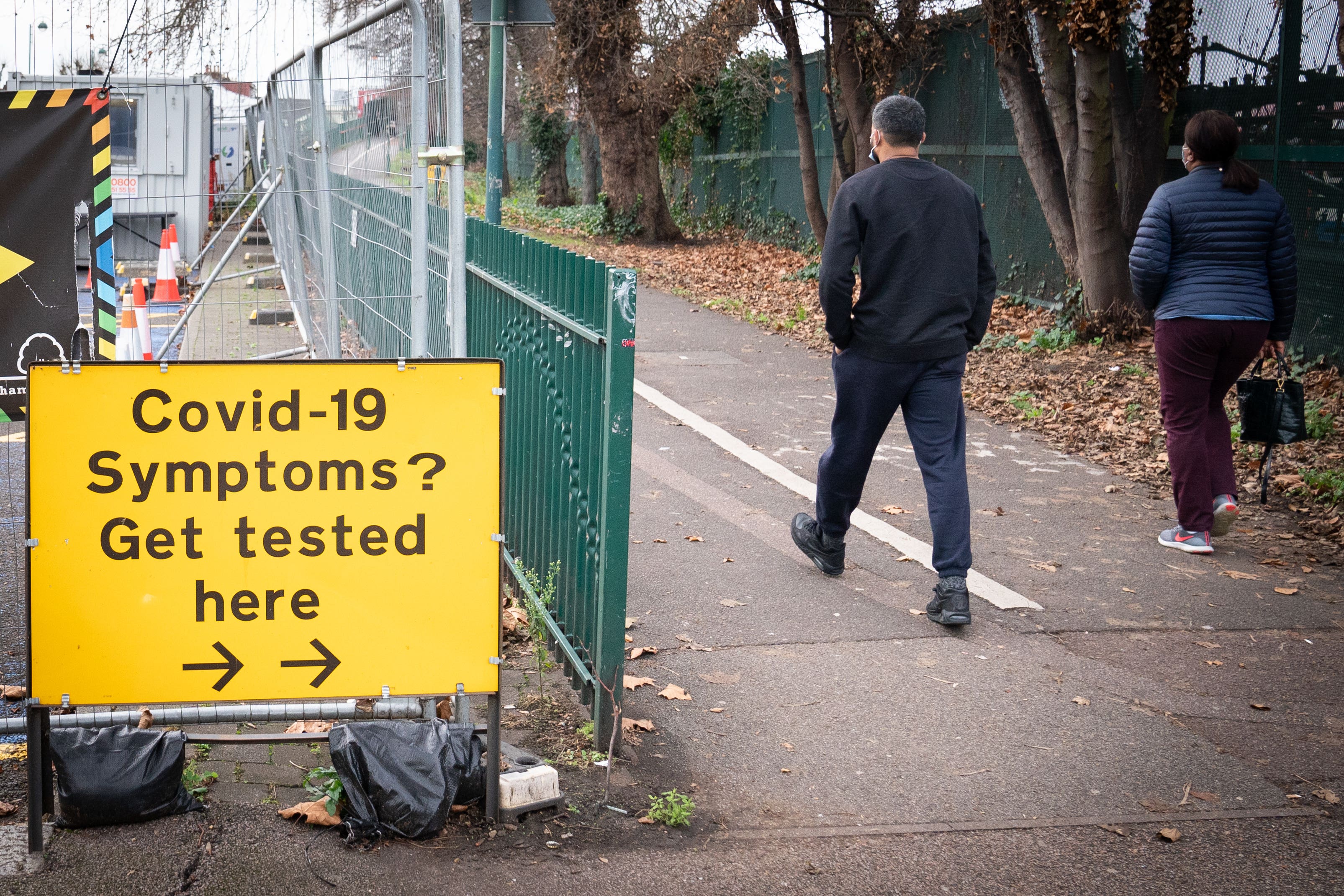What is XBB Covid? The new Omicron variant that has led to surge in cases
XBB is a subvariant of the Omicron BA.2 variant, and XBB.1.5 is a subvariant of XBB
Your support helps us to tell the story
From reproductive rights to climate change to Big Tech, The Independent is on the ground when the story is developing. Whether it's investigating the financials of Elon Musk's pro-Trump PAC or producing our latest documentary, 'The A Word', which shines a light on the American women fighting for reproductive rights, we know how important it is to parse out the facts from the messaging.
At such a critical moment in US history, we need reporters on the ground. Your donation allows us to keep sending journalists to speak to both sides of the story.
The Independent is trusted by Americans across the entire political spectrum. And unlike many other quality news outlets, we choose not to lock Americans out of our reporting and analysis with paywalls. We believe quality journalism should be available to everyone, paid for by those who can afford it.
Your support makes all the difference.New Covid strains are sparking fresh health concerns worldwide as new descendants of the highly-transmissible Omicron variant now reportedly account for 40 per cent of cases in the US.
Omicron relatives XBB and XBB.1.5 have seen a surge in cases in countries across the globe.
It comes as UK-based health experts have suggested that up to 9,000 people are dying from Covid a day in China, where infections have dramatically risen following the country’s end to strict isolation rules.
The surge has prompted the UK and US governments to require all passengers arriving in the respective countries from China from 5 January to return a negative Covid result before travelling.
Here is all you need to know:
So what are the XBB subvariants and where have they been seen?
XBB is a subvariant of the Omicron BA.2 variant, and XBB.1.5 is a subvariant of XBB.
It emerged as a “recombinant lineage between the second generation Omicron variants”, Professor Kei Sato wrote in a study by the University of Tokyo, Hokkaido University and Kyoto University, posted to preprint server bioRxiv.
The Japanese researchers studied XBB’s characteristics in hamsters including transmissibility and immune resistance.
Their results suggested that the subvariant is highly transmissible and has developed resistance to immunity.

In October 2022, the World Health Organisation (WHO) also said there was early evidence to suggest that XBB has a higher reinfection risk, compared to other circulating Omicron subvariants.
However, in a fact-checking article conducted by Reuters in November, its team concluded that there was no evidence that XBB “is more deadly or causes more severe COVID-19 than the Delta variant”.
Where have cases of XBB been reported?
The Omicron subvariants have taken the US by storm as together they accounted for 44.1per cent of the total cases in the country for the week ending 31 December.
The subvariants were previously reported as just XBB before this week.

Though the subvariants are currently dominant in the Northeast, they account for fewer than 10 per cent of infections in many other parts of the country, according to the U.S. Centers for Disease Control and Prevention on Friday (CDC).
XBB.1.5 has been detected in at least 74 countries and 43 US states, according to outbreak.info which uses data from the Global Initiative on Sharing Avian Influenza Data (GISAID).
These countries include China, India, Pakistan, Indonesia and Australia.

Has the subvariant reached the UK?
The XBB.1.5 variant has been detected in the UK, and is thought to constitute at least 4 per cent of Covid viruses being sequenced.
There is some uncertainty around the current reach of the new subvariant in the UK, however, since only the genetics of a small pool of Covid samples are now analysed.
Are we on the brink of a new Covid wave?
US scientists believe XBB.1.5 is at least in part to blame for the rise in hospital admissions in New York.
Whether the subvariant will trigger a new Covid surge in the UK is uncertain, but reports suggest a rise in cases is likely.
There is potential for some respite, however, with medical officials suggesting that the winter outbreaks of influenza and other respiratory viruses could temper the threat of a new, rampant Covid wave.
Catching a virus normally shocks our immune system into action, which offers some degree of protection against other infections which follow in its wake.
So if you suffered from a nasty bout of flu or another respiratory virus over the festive period, your innate defences could ward off an encounter with Covid for a period.




Join our commenting forum
Join thought-provoking conversations, follow other Independent readers and see their replies
Comments